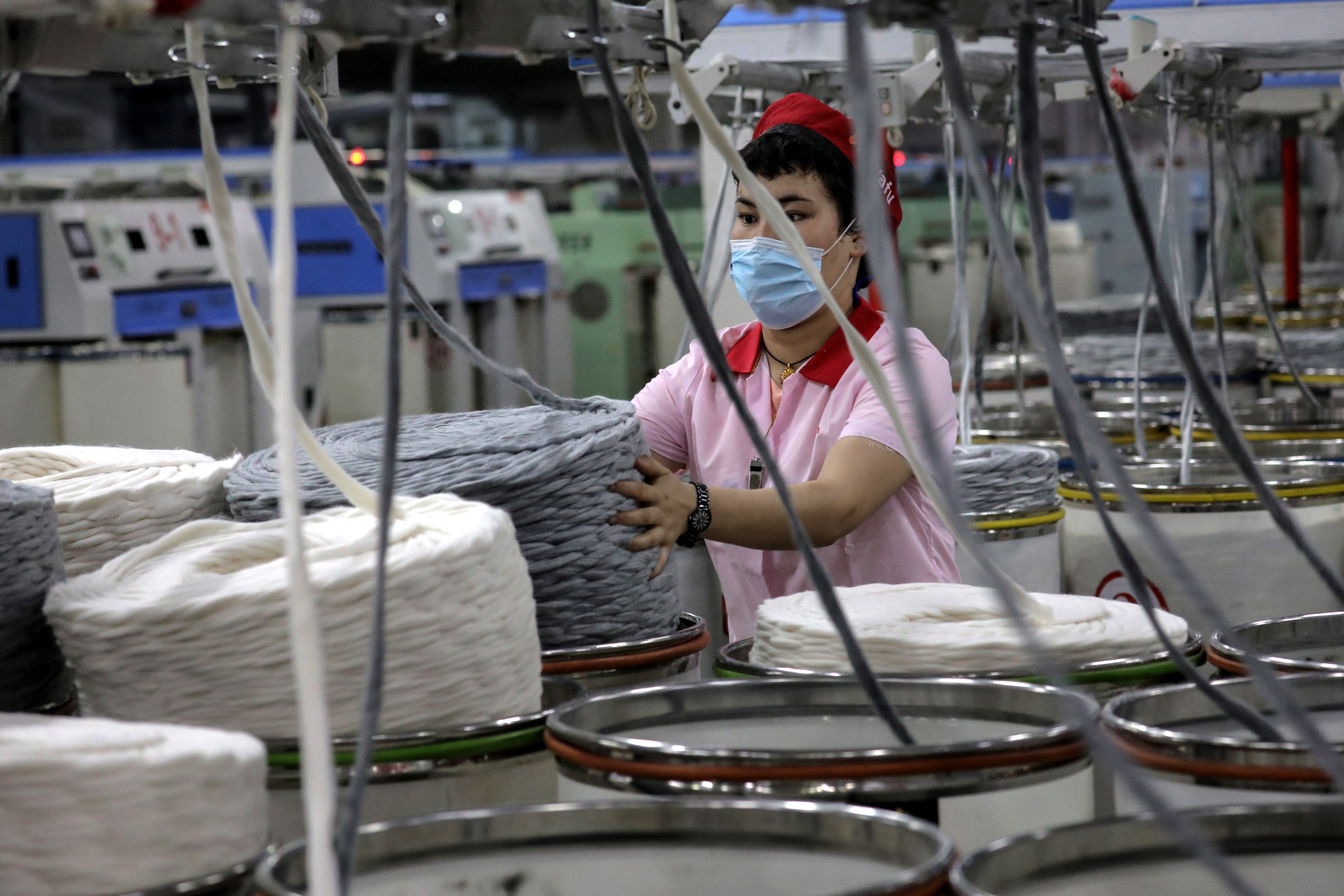Traces of Xinjiang cotton found in T-shirts made by Adidas, Puma and Hugo Boss, report says
Researchers conducted isotope analysis to trace origin of cotton used by the brands

Your support helps us to tell the story
From reproductive rights to climate change to Big Tech, The Independent is on the ground when the story is developing. Whether it's investigating the financials of Elon Musk's pro-Trump PAC or producing our latest documentary, 'The A Word', which shines a light on the American women fighting for reproductive rights, we know how important it is to parse out the facts from the messaging.
At such a critical moment in US history, we need reporters on the ground. Your donation allows us to keep sending journalists to speak to both sides of the story.
The Independent is trusted by Americans across the entire political spectrum. And unlike many other quality news outlets, we choose not to lock Americans out of our reporting and analysis with paywalls. We believe quality journalism should be available to everyone, paid for by those who can afford it.
Your support makes all the difference.Traces of cotton sourced from the Chinese province of Xinjiang have been found in clothes made by Adidas, Puma and Hugo Boss by German researchers.
The major fashion brands have denied sourcing cotton from the region in which China is accused of carrying out widespread human-rights violations.
An isotope analysis was used to trace the geographic origin of some t-shirts made by these brands by comparing cotton samples from the region, according to the investigative analysis carried out by the Agroisolab in Jülich and the Hochschule Niederrhein University of Applied Sciences, reported German public broadcaster NDR.
Markus Boner from Agroisolab told the broadcaster about an “unambiguous” signature in the cotton made by the climate and geology of a place.
He said such signatures are isotopic fingerprints to differentiate cotton sourced from other countries and other Chinese regions as well.
Cotton is a big business for China as its Xinjiang province accounts for 84 per cent of global supplies.
The region’s government has come under intense criticism for allegedly detaining Uyghur Muslims in the camps and is accused of some of the worst human rights violations, including forced labour on minorities.
Since 2017, China is widely reported to have detained more than a million – some estimates put the figure at three million – Uyghur Muslims in detention facilities that Beijing has described as vocational training centres.
The US banned cotton imports from the region after Joe Biden signed the Uyghur Forced Labor Prevention Act. Following pressure, several western clothes brands vowed to not use the cotton sourced from Xinjiang.
The German broadcaster’s investigative programme STRG_F reached out to the brands before the publication of the report to ask if they used Xinjiang cotton.
Hugo Boss said it did not tolerate forced labour in its supply chains, while Puma and Addidas denied using cotton from Xinjiang as well.
“The laboratory was able to prove that the ‘fingerprints’ of the cotton in the garments are very similar to the cotton samples from Xinjiang and can be clearly distinguished from other cotton-growing regions,” said the report.
“This means that clothing from all three companies apparently contains cotton from Xinjiang.”
Puma, in a statement to the Guardian newspaper, said they “strongly insist on the fact and reconfirm that Puma does not source any cotton from the Xinjiang region”.
“We do reiterate that we do not have any relations – direct or indirect – with any cotton supplier in the Xinjiang region.”
“Based on all the information we obtained through our investigations, and the traceability controls we put in place in our supply chain, we are confident that we do not source cotton from the Xinjiang region,” it added.
Addidas said the company “sources cotton exclusively from other countries and takes a variety of measures to ensure fair and safe working conditions in its supply chain”.
Join our commenting forum
Join thought-provoking conversations, follow other Independent readers and see their replies
Comments